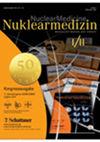前言。
IF 1.2
4区 医学
Q4 RADIOLOGY, NUCLEAR MEDICINE & MEDICAL IMAGING
引用次数: 0
摘要
《希腊神话与诗学》是《神话与诗学》系列的第二本书。作为系列编辑,我的目标是鼓励那些有助于将文学批评与人类学方法结合起来的作品,这些作品将特别关注有关仪式和神话关系的问题。为了完成这一任务,我们可以看看相对复杂的社会的比较证据,比如赞比亚的恩登布,也可以看看最小的社会,比如哥伦比亚亚马逊河流域的尤库纳。同样重要的是,我们必须追求最分层社会的各种证据,包括那些被冠以“西方文明”总标题的社会。正是在这里,神话的意义是最具误导性和挑战性的。在一个小规模的社会中,神话往往被视为该社会真理概念的编码;同时,从西方文明的观点来看,神话已经成为事实的对立面,真理的对立面。由于古希腊的政治概念是“文明”一词的基础,也是我们对西方文明概念的基础,因此本系列中不止一本书将主要讨论古希腊和古希腊城邦。希腊人的证词对我们的中心问题,即仪式和神话之间的关系,特别有启发意义。“神话”这个词,本文章由计算机程序翻译,如有差异,请以英文原文为准。
Foreword.
Greek Mythology and Poetics is the second book in the Myth and Poetics series. My goal, as series editor, is to encourage work that will help integrate literary criticism with the approaches of anthropology and that will pay special attention to problems concerning the nexus of ritual and myth. For such an undertaking, we may look to the comparative testimony of relatively complex societies, such as the Ndembu of Zambia, and also of the very smallest, such as the Yukuna of the Colombian Amazon. 1 Just as important, we must pursue the varied testimonies of the most stratified societies, including those which go under the general heading "Western civilization." It is precisely here that the meaning of myth is the most misleading-and challenging. In a small-scale society myth tends to be viewed as the encoding of that society's concept of truth; at the same time, from the viewpoint of Western civilization, myth has become the opposite of fact, the antithesis of truth. 2 Since the ancient Greek concept of politeiii serves as the foundation for the very word "civilization" and for our concept of Western civilization, more than one of the books in this series will deal primarily with ancient Greece and the ancient Greek city-state, or polis. The testimony of the Greeks is particularly instructive with regard to our central concern, the relationship between ritual and myth. The very word "myth,"
求助全文
通过发布文献求助,成功后即可免费获取论文全文。
去求助
来源期刊
CiteScore
1.70
自引率
13.30%
发文量
267
审稿时长
>12 weeks
期刊介绍:
Als Standes- und Fachorgan (Organ von Deutscher Gesellschaft für Nuklearmedizin (DGN), Österreichischer Gesellschaft für Nuklearmedizin und Molekulare Bildgebung (ÖGN), Schweizerischer Gesellschaft für Nuklearmedizin (SGNM, SSNM)) von hohem wissenschaftlichen Anspruch befasst sich die CME-zertifizierte Nuklearmedizin/ NuclearMedicine mit Diagnostik und Therapie in der Nuklearmedizin und dem Strahlenschutz: Originalien, Übersichtsarbeiten, Referate und Kongressberichte stellen aktuelle Themen der Diagnose und Therapie dar.
Ausführliche Berichte aus den DGN-Arbeitskreisen, Nachrichten aus Forschung und Industrie sowie Beschreibungen innovativer technischer Geräte, Einrichtungen und Systeme runden das Konzept ab.
Die Abstracts der Jahrestagungen dreier europäischer Fachgesellschaften sind Bestandteil der Kongressausgaben.
Nuklearmedizin erscheint regelmäßig mit sechs Ausgaben pro Jahr und richtet sich vor allem an Nuklearmediziner, Radiologen, Strahlentherapeuten, Medizinphysiker und Radiopharmazeuten.

 求助内容:
求助内容: 应助结果提醒方式:
应助结果提醒方式:


